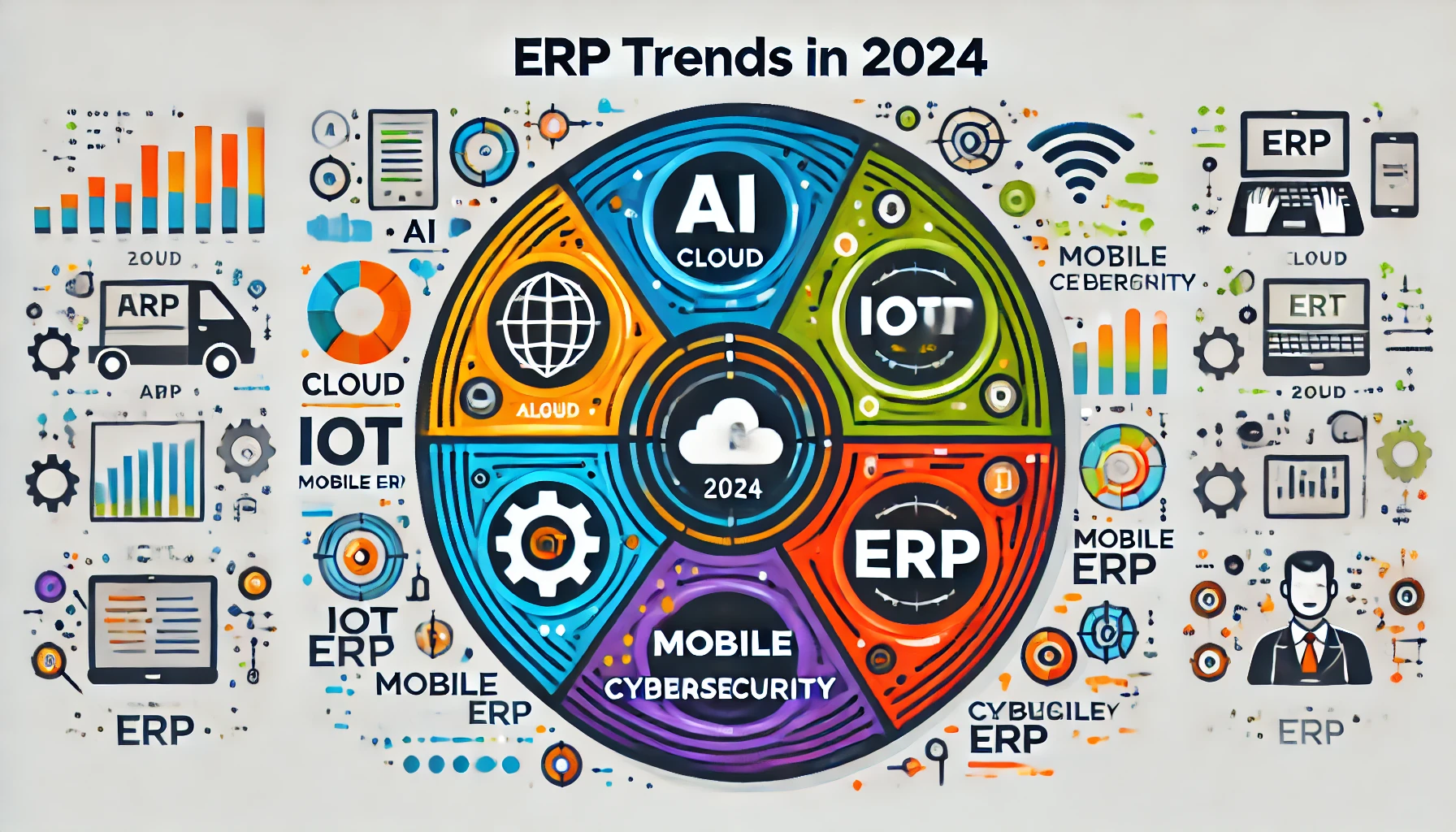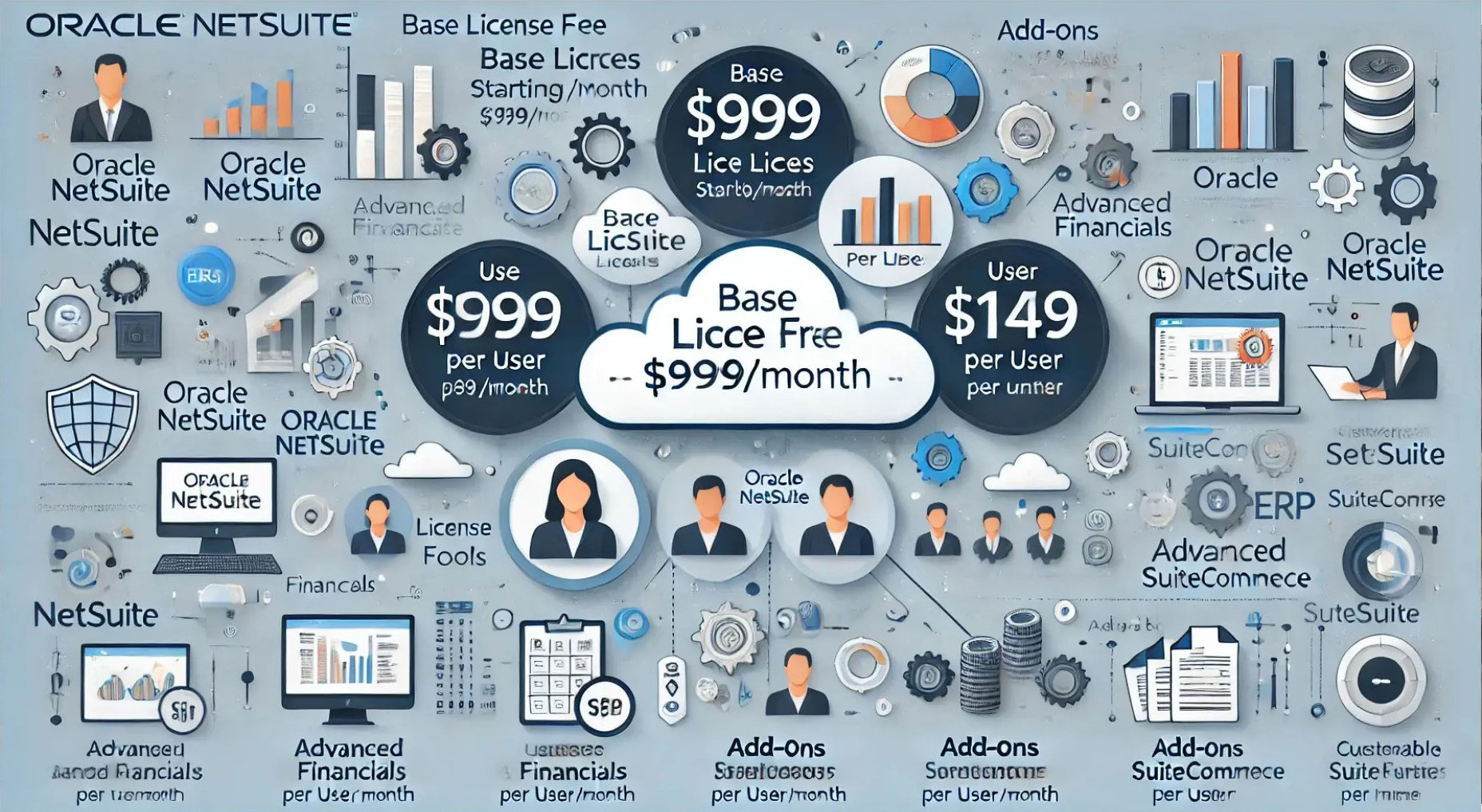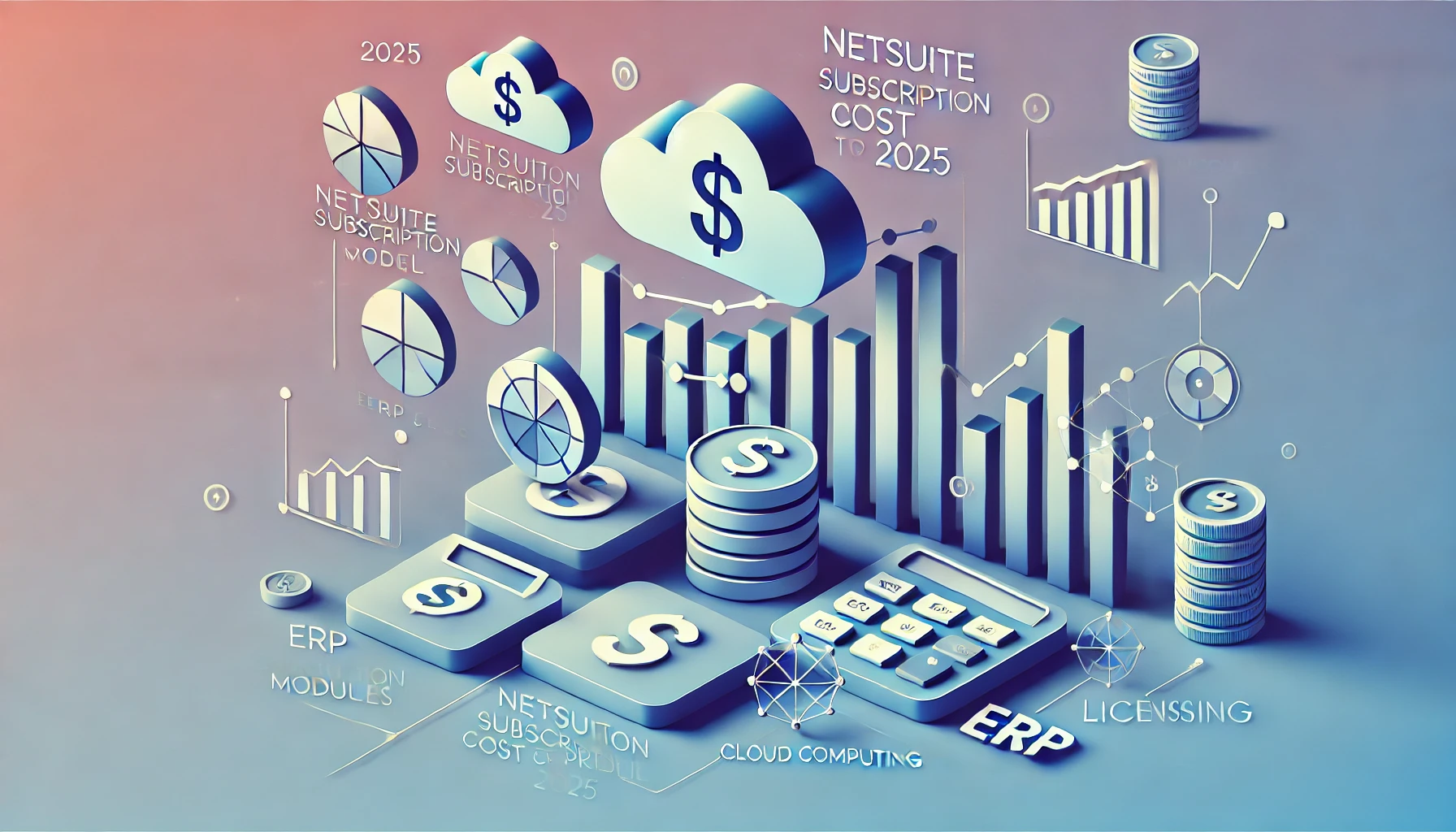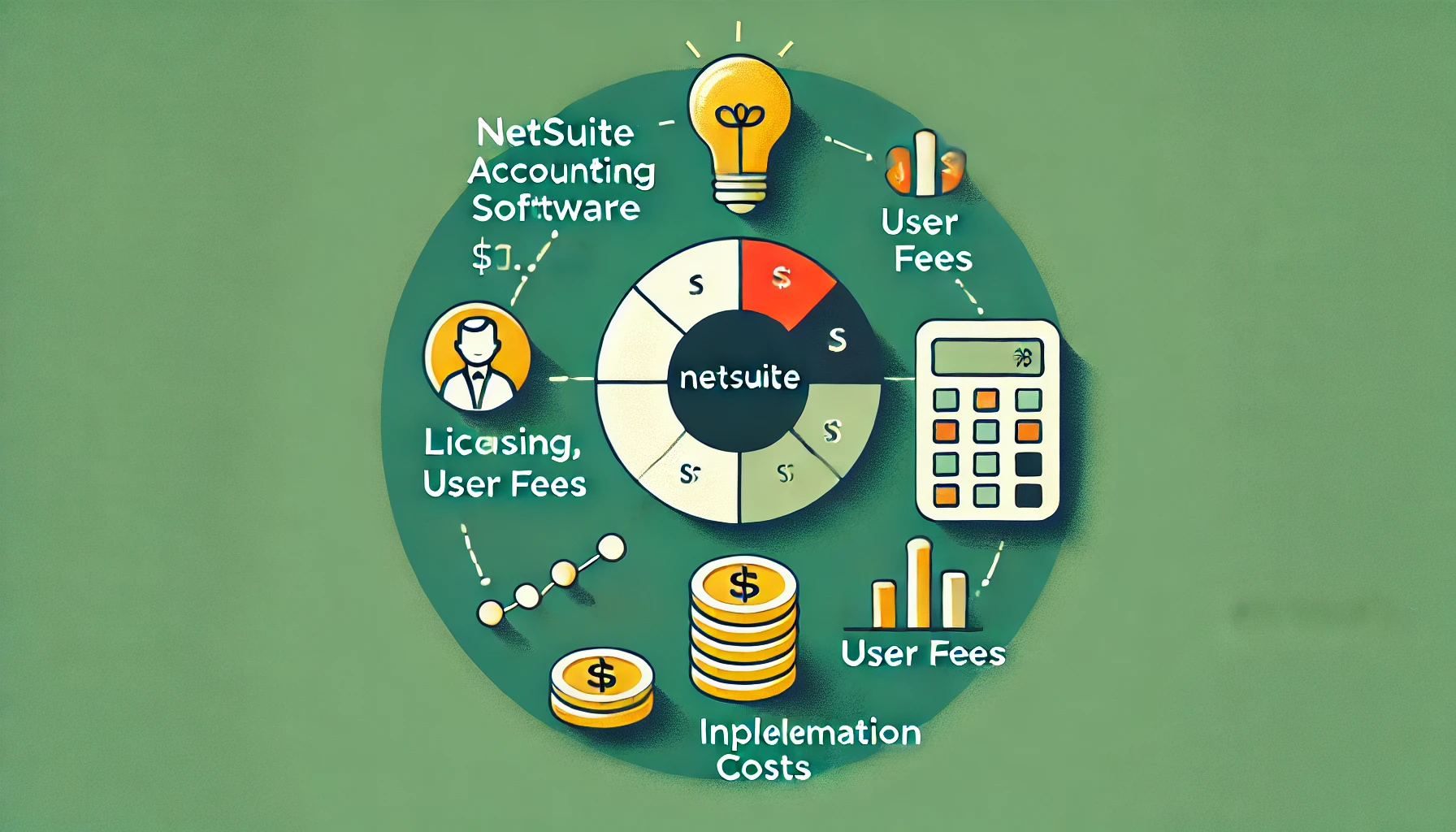As we approach 2025, it’s essential to explore the key ERP trends for 2024 and beyond that will shape the future of business processes and digital transformation. The landscape of enterprise resource planning (ERP) systems continues to evolve at an unprecedented pace. With businesses increasingly relying on technology to streamline operations, ERP systems are at the forefront of innovation.
Table of Contents
ToggleERP Trends 2024: The Road Ahead
The year 2024 marks a pivotal time for ERP technology. From AI integration to enhanced user experiences, ERP systems are adapting to meet the needs of a rapidly changing business environment. Here are the trends to watch out for:
1. AI and Machine Learning in ERP Systems
Artificial intelligence (AI) and machine learning (ML) are no longer buzzwords; they’re becoming integral components of ERP systems. Advanced analytics, predictive modeling, and intelligent automation are now embedded within ERP platforms to enhance decision-making and operational efficiency.
- Predictive Analytics: AI helps businesses forecast demand, manage inventory, and optimize supply chain processes.
- Automation: Repetitive tasks like data entry and invoice processing can now be automated, reducing human error and saving time.
2. Cloud-Based ERP Solutions Dominate
Cloud-based ERP adoption is on the rise, providing businesses with scalability, cost savings, and accessibility. This trend continues to grow as organizations seek more flexible and efficient solutions.
- Advantages of Cloud ERP: Real-time data access, seamless updates, and reduced IT infrastructure costs.
- Hybrid Models: Many companies are adopting hybrid ERP systems, combining on-premise and cloud-based solutions to balance control and scalability.
3. Focus on Industry-Specific ERP Systems
One-size-fits-all ERP solutions are becoming a thing of the past. Industry-specific ERP systems are tailored to meet the unique requirements of sectors such as manufacturing, retail, healthcare, and construction.
- Manufacturing: ERP systems now include IoT integration for real-time production tracking.
- Healthcare: Compliance management and patient data security are prioritized in healthcare ERP solutions.
4. Increased Integration with IoT
The Internet of Things (IoT) is transforming how businesses manage assets and operations. ERP systems now incorporate IoT data for enhanced visibility and control.
- Inventory Management: IoT sensors enable real-time tracking of stock levels and movement.
- Preventive Maintenance: IoT data ensures machinery maintenance is performed before issues arise, reducing downtime.
5. Mobile ERP for On-the-Go Access
Mobile ERP applications are empowering businesses to stay connected, regardless of location. This trend supports remote work and increases productivity.
- Field Operations: Mobile ERP enables field teams to access data, update records, and generate reports on-site.
- Enhanced Collaboration: Teams can share real-time updates, ensuring better communication and decision-making.
6. Improved User Experiences
Modern ERP systems prioritize user-centric designs. Simplified interfaces and personalized dashboards improve adoption rates and productivity.
- AI-Powered Assistance: Chatbots and virtual assistants guide users through tasks, making ERP systems more intuitive.
- Customizable Dashboards: Users can tailor their views to focus on the data most relevant to their roles.
7. Cybersecurity Enhancements
As ERP systems store sensitive business data, cybersecurity is a growing concern. Enhanced security measures ensure data integrity and compliance.
- Advanced Authentication: Multi-factor authentication (MFA) and biometric verification protect access to ERP systems.
- Encryption: Secure data transmission and storage reduce the risk of breaches.

Benefits of Staying Ahead with ERP Trends
Investing in the latest ERP trends offers several advantages:
- Increased Efficiency: Automation and AI reduce manual workload and improve accuracy.
- Scalability: Cloud-based ERP solutions grow with your business needs.
- Competitive Edge: Businesses leveraging modern ERP systems are better equipped to adapt to market changes.
Preparing for ERP Trends in 2025 and Beyond
To stay competitive, businesses must align their ERP strategies with these trends. Here’s how to prepare:
- Evaluate Your Current ERP System: Conduct regular health checks to identify gaps and inefficiencies.
- Partner with a Reliable Vendor: Work with ERP providers who prioritize innovation and scalability.
- Invest in Training: Equip your team with the skills needed to maximize ERP system capabilities.
- Adopt a Phased Approach: Gradually implement new features to minimize disruption.
ERP for Growing Enterprises: A Key Trend
One significant focus area is ERP systems designed specifically for growing enterprises. As businesses expand, their operational needs become more complex. Scalable ERP solutions ensure seamless growth while maintaining efficiency.
- Affordable Solutions: Vendors now offer pricing models suited to smaller enterprises.
- Custom Features: Tailored solutions address unique requirements, such as inventory management or client tracking.
ERP Simplified: Making Technology Accessible
Modern ERP systems aim to simplify complex processes, ensuring businesses of all sizes can leverage technology effectively. From intuitive interfaces to step-by-step guides, ERP systems are more accessible than ever.

Conclusion
The future of ERP systems is bright, with trends like AI integration, cloud-based solutions, and industry-specific systems leading the way. As we look to 2025 and beyond, businesses must adapt to these innovations to remain competitive and efficient.
At ERP with Sagar, we’re committed to helping enterprises navigate the evolving ERP landscape. Whether you’re exploring Custom ERP Solutions for Your Business or optimizing your existing system, our insights ensure you stay ahead in the digital transformation journey.
Embrace the future of ERP and unlock your business’s full potential.




